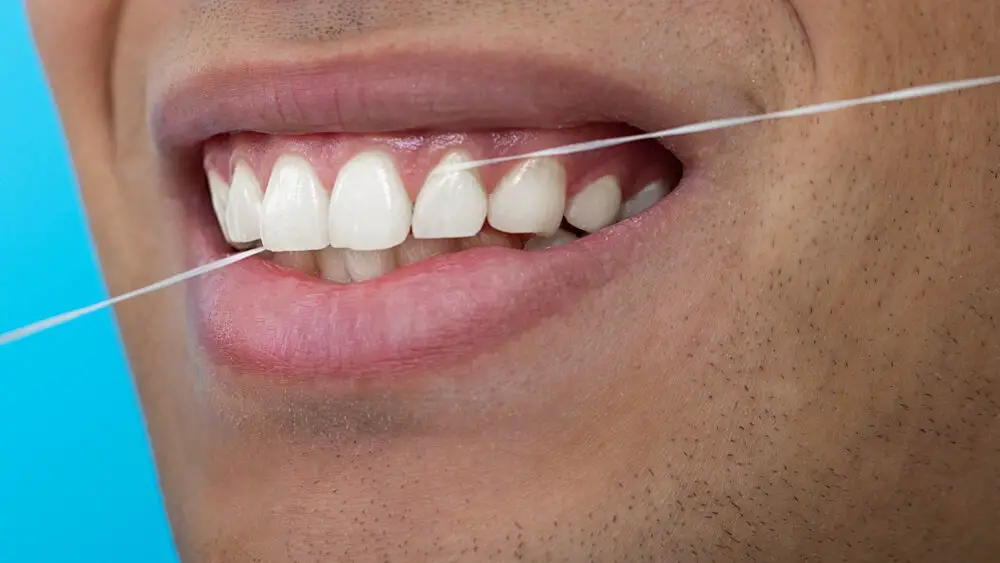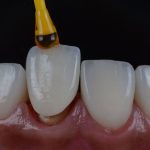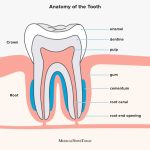Why Do My Teeth Hurt When I’m Sick? Understanding the Relationship Between Illness and Tooth Pain

Tooth pain can be a real nuisance, especially when it strikes unexpectedly. While there are various reasons why your teeth may hurt, one possible cause that you may not have considered is illness. It might come as a surprise, but there’s actually a connection between being sick and experiencing tooth pain. Understanding this relationship can help you manage your symptoms and seek appropriate treatment. When we think of tooth pain, we often associate it with dental problems such as cavities, gum disease, or tooth decay. However, the truth is that tooth pain can also be a symptom of an underlying health issue. When you’re sick, your immune system is working hard to fight off the infection or illness, and this can lead to a variety of symptoms, including tooth pain. In some cases, the pain may be caused by sinus pressure or inflammation, while in other cases, it may be a side effect of medication you’re taking to manage your illness. Regardless of the cause, understanding how illness and tooth pain are related can help you take better care of your overall health.
It’s not uncommon for people to experience tooth pain or sensitivity when they’re sick, but why does this happen? The phenomenon occurs due to the close proximity of the sinuses to the roots of the upper teeth. When we’re sick, our sinuses may become inflamed or infected, causing pressure to build up and resulting in pain radiating to the teeth. Additionally, dehydration can also cause the mouth to become dry, leading to a decrease in saliva production and an increase in bacteria growth. This can lead to tooth decay or gum disease, causing further tooth sensitivity or pain. Overall, it’s important to prioritize oral hygiene and stay hydrated when sick to help alleviate tooth pain and prevent further dental issues.
Understanding the relationship between illness and tooth pain is crucial to maintaining good oral health. Tooth pain can be a symptom of various illnesses, such as sinus infections, strep throat, and even the common cold. When we are sick, our immune system is working hard to fight off the illness, which can lead to inflammation throughout the body, including in the teeth and gums. This inflammation can cause tooth pain or sensitivity. Additionally, some medications taken during illness can also cause dental issues, such as dry mouth or gum disease. By understanding this relationship, we can take steps to prevent dental problems during illness, such as maintaining good oral hygiene and staying hydrated.
Sinus Infections and Tooth Pain

Sinus infections can be a painful and uncomfortable experience, and they often come with a host of related symptoms, including tooth pain. The sinuses are located close to the upper teeth, and when they become inflamed or infected, the pressure can cause discomfort in the surrounding teeth. This pain is often described as a dull ache or pressure, and it can be felt in the upper back teeth, the upper front teeth, or both. In some cases, sinus infections can also lead to tooth sensitivity or pain when biting down. If you are experiencing tooth pain in conjunction with a sinus infection, it is important to address both issues at once. Treating the sinus infection can help alleviate the tooth pain, but it is also important to address any underlying dental issues that may be contributing to the discomfort. Your dentist may recommend a dental exam to rule out any underlying issues, such as cavities or gum disease, and they may also recommend pain management techniques, such as over-the-counter pain relievers or a warm compress to help ease the discomfort. By taking a comprehensive approach to your dental and sinus health, you can find relief from tooth pain and other related symptoms.
Sinus infections are a common cause of tooth pain. When the sinuses become inflamed due to infection, the pressure can push down on the roots of the upper teeth, causing pain and discomfort. This pain can be felt in the upper teeth, especially the molars, and can be throbbing or constant in nature. Additionally, the sinuses are located close to the roots of the upper teeth, and the nerves in the sinuses can become irritated, leading to referred pain in the teeth. This can make it difficult to determine the exact source of tooth pain, but sinus infections are often the culprit. Treating the sinus infection can help alleviate tooth pain associated with sinusitis.
Sinus infections can cause tooth pain due to the close proximity of the maxillary sinuses to the upper teeth. When the sinuses become inflamed or infected, pressure can build up and radiate to the surrounding teeth, causing pain and discomfort. Other symptoms of sinus infections that may contribute to tooth pain include congestion, facial pain or pressure, headache, and a runny or stuffy nose. Sinus infections are often accompanied by a feeling of general malaise, which can make it difficult to pinpoint the exact cause of the tooth pain. If you suspect that your tooth pain is related to a sinus infection, it’s important to see a healthcare provider for proper diagnosis and treatment.
Tooth pain caused by sinus infections can be quite uncomfortable, but fortunately, there are several ways to treat it. One effective method is to manage the sinus infection itself, usually with antibiotics and decongestants. Using a saline spray or nasal irrigation can help clear the sinuses and alleviate pressure on the teeth. Over-the-counter pain relievers, such as ibuprofen or acetaminophen, can also be helpful in reducing discomfort. Additionally, applying a warm compress to the affected area can help to soothe any inflammation and pain. If the pain persists or worsens, it is important to consult with a dentist or healthcare provider to ensure that there are no underlying dental issues.
Coughing and Tooth Pain

Coughing and tooth pain can be a frustrating combination for many people. When you’re sick, your body is already dealing with enough discomfort, and tooth pain can add to the misery. There are several reasons why coughing can cause tooth pain. One reason is that coughing can lead to sinus pressure, which can cause pain and sensitivity in the teeth. Additionally, coughing can cause inflammation in the sinuses, which can put pressure on the teeth, leading to discomfort. Another reason why coughing can cause tooth pain is that it can cause pressure changes in the mouth, which can irritate the teeth and gums. If you’re experiencing tooth pain when you’re sick, it’s important to address the issue as soon as possible. Ignoring tooth pain can lead to more serious dental problems, such as gum disease or tooth decay. If you’re experiencing tooth pain when you’re sick, it’s important to stay hydrated and avoid sugary or acidic foods and drinks. You should also practice good oral hygiene, such as brushing and flossing regularly, to keep your teeth and gums healthy. If your tooth pain persists or becomes more severe, you should see a dentist as soon as possible to get treatment and prevent further damage.
When we cough, the force and pressure exerted by the forceful expulsion of air can cause tooth pain. This happens because our teeth and their supporting structures are connected to the maxillary sinus, which is located just above the upper teeth. When we cough, the pressure changes in the maxillary sinus, which can cause pain and discomfort in the teeth. Additionally, if we have a sinus infection or congestion, the pressure in the sinus can increase even more, exacerbating the tooth pain. Furthermore, coughing can also cause a person to clench their teeth, leading to further stress and pain in the jaw and teeth. Overall, coughing can cause tooth pain through a combination of pressure changes and clenching of the teeth, making it important to take care of our dental health during illness.
Tooth pain during prolonged coughing is a common occurrence that can be attributed to several factors. One of the main reasons is that the sinuses and teeth are closely connected, with the roots of the upper teeth often extending into the sinus cavities. When you cough, the pressure created can cause a shift in these cavities, leading to an increase in pressure and inflammation, which can irritate the nerves in the teeth. Additionally, coughing can cause a decrease in saliva production, which can lead to dry mouth and an increased risk of tooth decay and gum disease. Finally, the strain of coughing can cause tension in the jaw and neck muscles, which can also contribute to tooth pain. Overall, it’s important to be aware of the connection between illness and tooth pain and take steps to maintain good oral hygiene and seek treatment if necessary.
Tooth pain caused by coughing can be a frustrating and uncomfortable symptom of illness. One way to alleviate this pain is to avoid coughing as much as possible. This can be achieved by taking over-the-counter cough suppressants or using a humidifier to moisten the air you breathe. Additionally, practicing good oral hygiene, such as brushing and flossing regularly, can help reduce the risk of tooth decay and gum disease that can exacerbate tooth pain. If the pain persists, it is recommended to visit a dentist to rule out any underlying dental issues that may require treatment.
Fever and Tooth Pain

Fever and tooth pain are often related due to their close proximity in the body. When the body is fighting an infection or illness, it raises its temperature to help combat the foreign invader. This increase in temperature can cause the blood vessels in the mouth to dilate, leading to increased pressure and sensitivity in the teeth. Additionally, the immune response can cause inflammation in the gums, which can exacerbate existing dental issues such as cavities or gum disease. It is essential to maintain good oral hygiene and visit the dentist regularly to avoid these issues from arising. If you are experiencing tooth pain and fever, it is crucial to address the underlying cause promptly. Ignoring these symptoms can lead to more severe dental problems and even spread the infection throughout the body. Some simple home remedies, such as gargling with salt water or taking over-the-counter pain medication, can help alleviate the symptoms temporarily. However, it is essential to visit a dentist to receive a proper diagnosis and treatment plan. By taking care of your dental health and staying on top of any illnesses, you can prevent tooth pain and maintain a healthy smile.
When we get sick and experience a fever, our body temperature rises above normal. This rise in temperature can cause the blood vessels in our teeth to expand and put pressure on the nerves inside. This pressure can lead to tooth pain or sensitivity, especially if we already have existing dental problems such as cavities or gum disease. Additionally, when we have a fever, our immune system is working overtime to fight off infection, which can cause inflammation throughout the body, including in the gums and teeth. This inflammation can also contribute to tooth pain or discomfort. Therefore, it’s important to prioritize good dental hygiene even when we’re feeling under the weather to prevent any pre-existing dental issues from exacerbating during a fever.
Tooth pain caused by fever can be distinguished from other causes by considering accompanying symptoms. If the tooth pain is accompanied by other signs of illness such as body aches, chills, and a high temperature, then it is likely that the pain is caused by a fever. On the other hand, if the pain is localized to a specific tooth and is not accompanied by any other symptoms of illness, then it may be caused by a dental issue such as a cavity, abscess, or gum disease. Additionally, tooth pain caused by fever may be temporary and subside as the underlying illness is treated, whereas dental issues will require specific treatment to resolve the pain.
Tooth pain caused by fever can be a frustrating and uncomfortable experience. To treat this type of tooth pain, it is important to first address the underlying illness causing the fever. This may involve taking medications such as antibiotics or fever reducers. Additionally, over-the-counter pain relievers like ibuprofen or acetaminophen can help alleviate the tooth pain. Applying a cold compress or ice pack to the affected area can also provide temporary relief. It is important to maintain good oral hygiene practices, including brushing and flossing regularly, to prevent further tooth decay and pain. If the tooth pain persists or worsens, it is recommended to seek the advice of a dentist or healthcare professional.
The relationship between illness and tooth pain is a complex one. Many people have experienced tooth pain when they are sick, and this is often due to the presence of bacteria in the mouth. When you are sick, your immune system is weakened, which can allow bacteria to thrive in your mouth. This can lead to cavities, gum disease, and other dental problems that can cause tooth pain. Additionally, some illnesses, such as sinus infections, can cause pressure to build up in the sinuses, which can put pressure on the teeth and cause them to ache. In some cases, tooth pain can also be a symptom of a more serious underlying medical condition, so it is important to see a dentist if you are experiencing persistent tooth pain, particularly if it is accompanied by other symptoms such as fever or difficulty breathing.
It is essential to seek dental and medical attention when experiencing tooth pain during illness. Tooth pain can be a symptom of underlying health issues, such as sinus infections or ear infections. These conditions can cause pressure changes in the head and face, leading to tooth pain. In addition, some medications used to treat illnesses can cause dry mouth, which can increase the risk of tooth decay and gum disease. Seeking dental and medical attention can help diagnose and treat the underlying condition causing tooth pain, as well as prevent further dental complications. It is crucial to address tooth pain promptly to ensure overall health and well-being.
Conclusion

In conclusion, it is important to understand the relationship between illness and tooth pain. When we are sick, our immune system is working hard to combat the infection, which can lead to inflammation and pressure in our sinuses and teeth. Additionally, certain illnesses or medications can cause dry mouth, which can increase the risk of tooth decay and sensitivity. Maintaining good oral hygiene and staying hydrated can help alleviate some of these symptoms. If tooth pain persists or is severe, it is important to consult a dentist to rule out any underlying dental issues. By taking care of our overall health and oral hygiene, we can minimize the discomfort of tooth pain during illness and ensure a healthy, happy smile.







